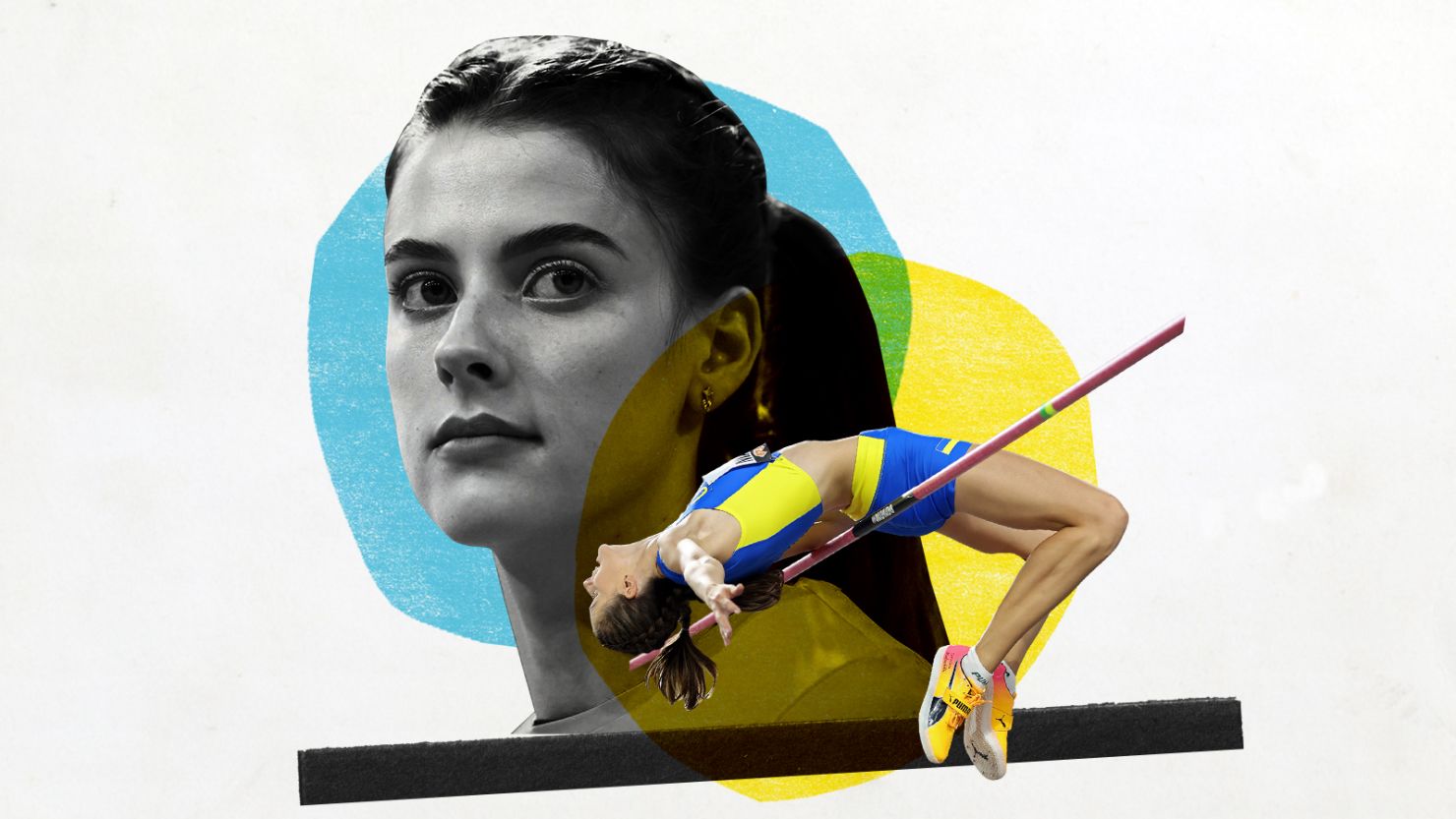At some point last year, Yaroslava Mahuchikh vowed to stop reading the news before competitions, so distressing did she find the stories and images of bloodshed in her native Ukraine.
One of the world’s top high jumpers, Mahuchikh knew that absolute concentration was required to perfectly execute her run-up, take-off and back-arching leap, but still her mind would gravitate towards the difficult situation thousands of miles away back home.
Perhaps that’s only natural when your country is at war and fresh missile attacks are being launched on a regular basis – some even directed at blocks in your hometown.
“It’s challenging for me to compete after reading the news of rockets sent to civilians,” Mahuchikh tells CNN Sport. “I’m thinking about how many people died, how many peoples’ houses were destroyed. It’s difficult.”
That strategy – of trying to shut out Russia’s invasion of Ukraine before she competes – proved effective last year. Mahuchikh won her first world championship title in August, then successfully defended her Diamond League Final victory in September.
Understandably, her confidence is now high for the months ahead. That includes the Millrose Games in New York this weekend, the world indoor championships in Glasgow in March and then the Paris Olympics in July and August.
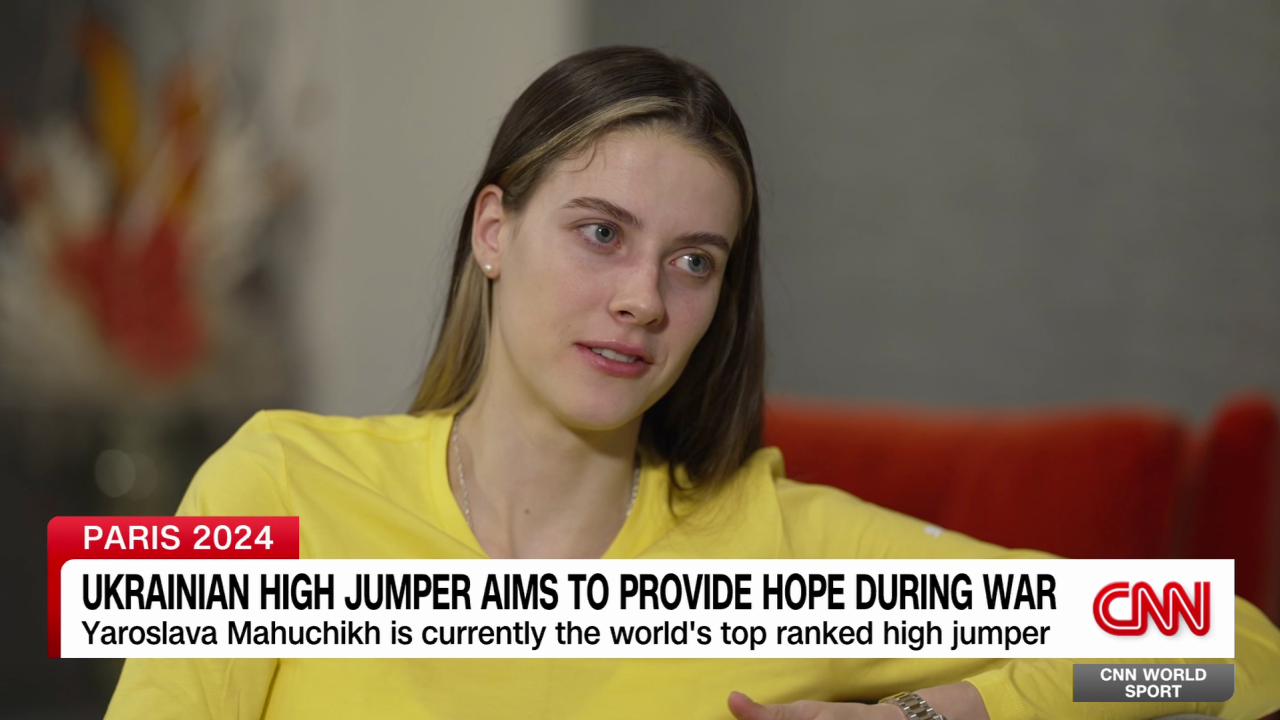
She’s unsure if she will return to Ukraine in that time having moved between various training bases around Europe for most of the past two years. Because of the war, itinerancy has become a common theme in her life.
“I live in a suitcase, really,” says Mahuchikh, “because with traveling, we don’t have a hometown.”
Her family – her mother and sister – have sometimes joined the 22-year-old while she is on the road, but her father, like many Ukrainians, has stayed at home in Dnipro. That’s often a source of anxiety for Mahuchikh, especially when Russian attacks target the eastern city.
“My father, he said that, unfortunately, for a lot of people, it’s life right now, we live in this way,” she explains.
“And they continue their life. My father sometimes says, ‘Oh, you know, if the rockets come, it’s okay, it’s my life, maybe it’s God saying that it’s finished.’ And I say, ‘Oh my gosh, father, please – go to the basement.’”
Dnipro has absorbed several deadly missile attacks throughout the invasion, with the Russian military targeting apartment blocks and medical facilities in the city.
In August last year, Ukraine’s?War Crimes Department in the Prosecutor General’s Office said that approximately 10,749 civilians had been killed during the war and 15,599 wounded.
Yet even as fighting rages on, Mahuchikh still longs for the familiarity of being back home with her family and friends.
“If I was not an athlete at international level, I think I would be in Ukraine,” she says. “But I have some goals and I’m competing for my country. I represent Ukraine at competitions; it’s my goal and it’s my mission, I think.”
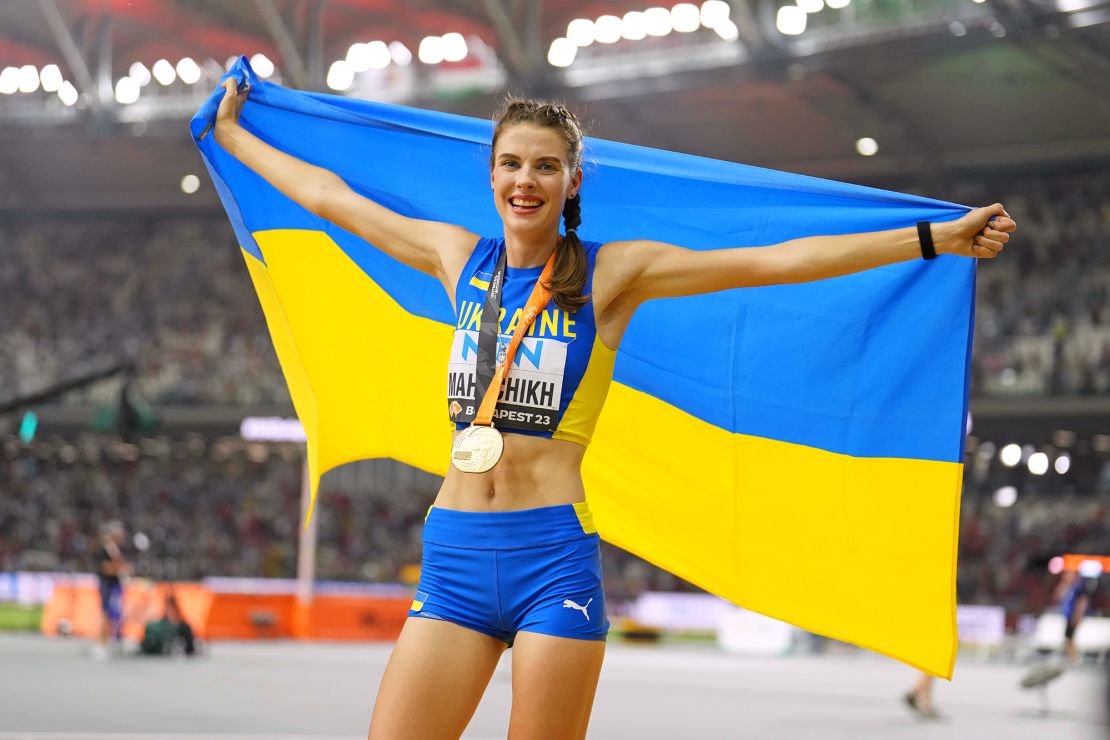
Russia’s invasion has invigorated Mahuchikh’s sense of national pride. She wore blue and yellow eye shadow – the colors of the Ukrainian flag – at last year’s world championships and is supporting fundraising efforts to send wheelchairs to disabled orphans in Ukraine.
She also hopes that competing at high-profile events and winning gold medals will provide her with a platform from which to highlight her country’s plight.
“I feel that I am an ambassador of Ukraine and I have this possibility to involve a lot of people in this problem that Ukrainian people now have,” says Mahuchikh.
“A lot of families are under rocket attack; a lot of children, unfortunately, lost their parents or parents lost their children. It’s so sad, and it’s so sad that a lot of athletes and coaches died in this war. But I want to help my country. It’s the main goal.”
According to Vadim Guttsait, Ukraine’s sports minister and president of its National Olympic Committee (NOC), more than 400 Ukrainian athletes have been killed since the start of the war.
This year’s Olympics, Mahuchikh believes, will enable Ukrainian athletes to promote a message of peace, though perhaps inevitably, the Games have also become entwined in geopolitics.
In particular, the question of whether athletes from Russia and Belarus, a key military launchpad during the war in Ukraine, will be able to compete has become a flashpoint.
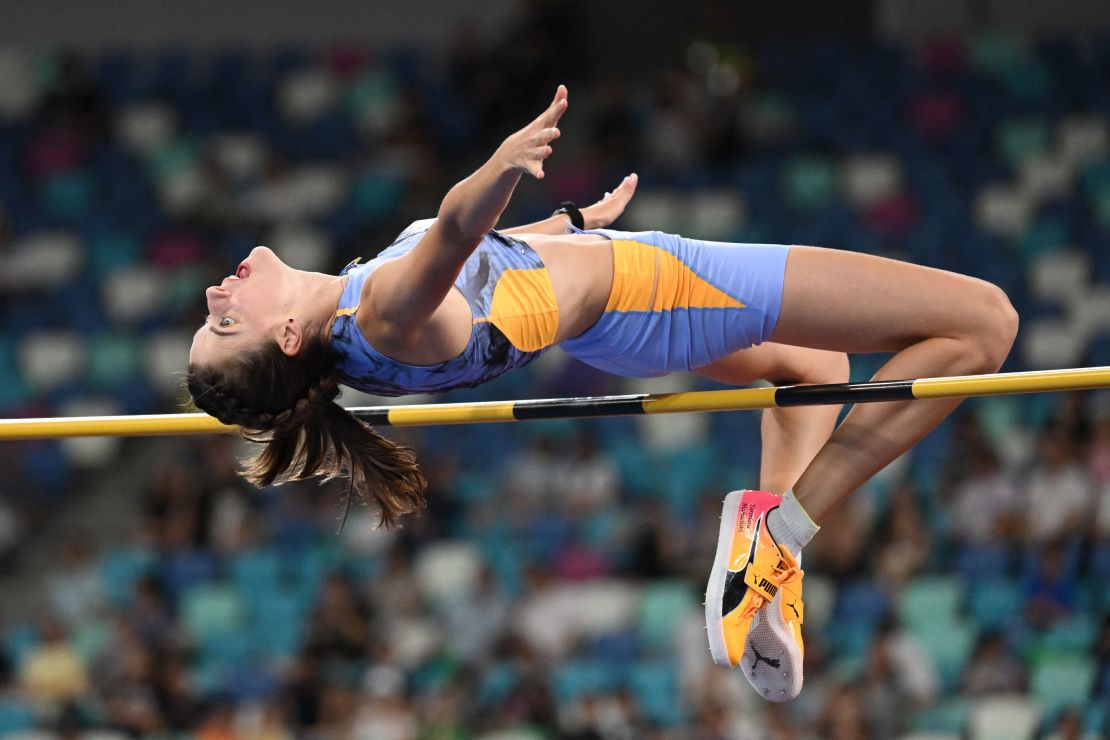
In December, the International Olympic Committee (IOC) announced that athletes from those two countries will be able to take part as neutrals in Paris, so long as they meet certain eligibility criteria.
For example, only individual athletes, rather than teams, will be included in the Games, and athletes who actively support the war or who are contracted to their country’s military services will be ineligible.
However, international federations have the first say on whether Russian and Belarusian athletes can qualify for the Olympics. World Athletics, the governing body of track and field, has excluded Russian and Belarusians from events “for the foreseeable future,” meaning they will be unable to compete in track and field events in Paris as things stand.
It’s a contentious topic: some, like the IOC’s executive board, believe that individual athletes shouldn’t be stopped from competing on the basis of their passport, while others, namely a campaign group representing Ukrainian athletes, argue that Russian participation of any kind only strengthens the country’s “propaganda machine.”
Mahuchikh welcomes World Athletics’ stance, believing that neutral flags are an ineffective way of concealing an athlete’s national identity.
“When I see Russian athletes … I see every city destroyed, every life that was destroyed by Russian people, by the Russian Federation,” she says, adding that she would find it “difficult” to compete against athletes from Russia and Belarus.
Last month, more than 200 sportspeople from Ukraine wrote a letter to French President Emmanuel Macron, urging Russians and Belarusians to be banned from competing at the Games.
However, neither local organizers nor the French government have jurisdiction over who qualifies for the Olympics, and Paris 2024 organizers have underlined that this responsibility lies with the IOC and international federations.
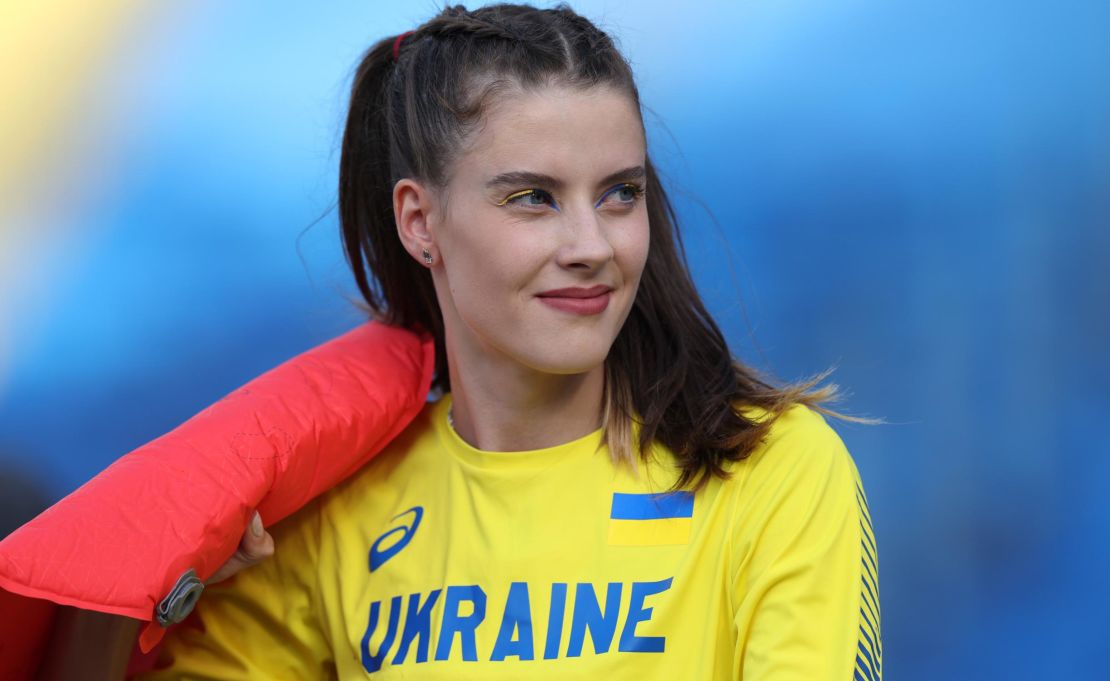
Guttsait has previously suggested that Ukraine could boycott the Games if Russian and Belarusian athletes are allowed to compete, though a final decision is yet to be made.
Mahuchikh is against such a move, instead believing that the Olympics should represent “peace in all the world.” A bronze medalist in Tokyo three years ago, she is also one of Ukraine’s biggest stars in Paris, aiming to win what would be her country’s first gold medal in the high jump.
“Every athlete wants to compete, every athlete wants to win the gold medal,” says Mahuchikh. “Of course, I have goals for winning, and I want to have this medal in my sports career.”
She has tweaked her technique ahead of the upcoming indoor season, shortening her run-up to compensate for her increased speed as she approaches the bar. Having made her season debut in Cottbus, Germany, last weekend – finishing first after clearing a world-leading height of two meters and four centimeters (about 6.69 feet) – the new technique will be put to the test again at the Millrose Games.
This is where Mahuchikh’s immediate focus lies, but in the long term, she has loftier ambitions for her career – namely Stefka Kostadinova’s world record of two meters and nine centimeters (about 6.86 feet).
The Bulgarian’s mark has stood since 1987, making it one of the longest-standing world records in track and field. Mahuchikh has watched the likes of Karsten Warholm and Mondo Duplantis – both, like her, sponsored by Puma – set records in the 400-meter hurdles and the pole vault respectively, and now she hopes to join the club.
“I believe that one day I will jump 2.10,” she says. “I want to be part of this family of world record holders.”
